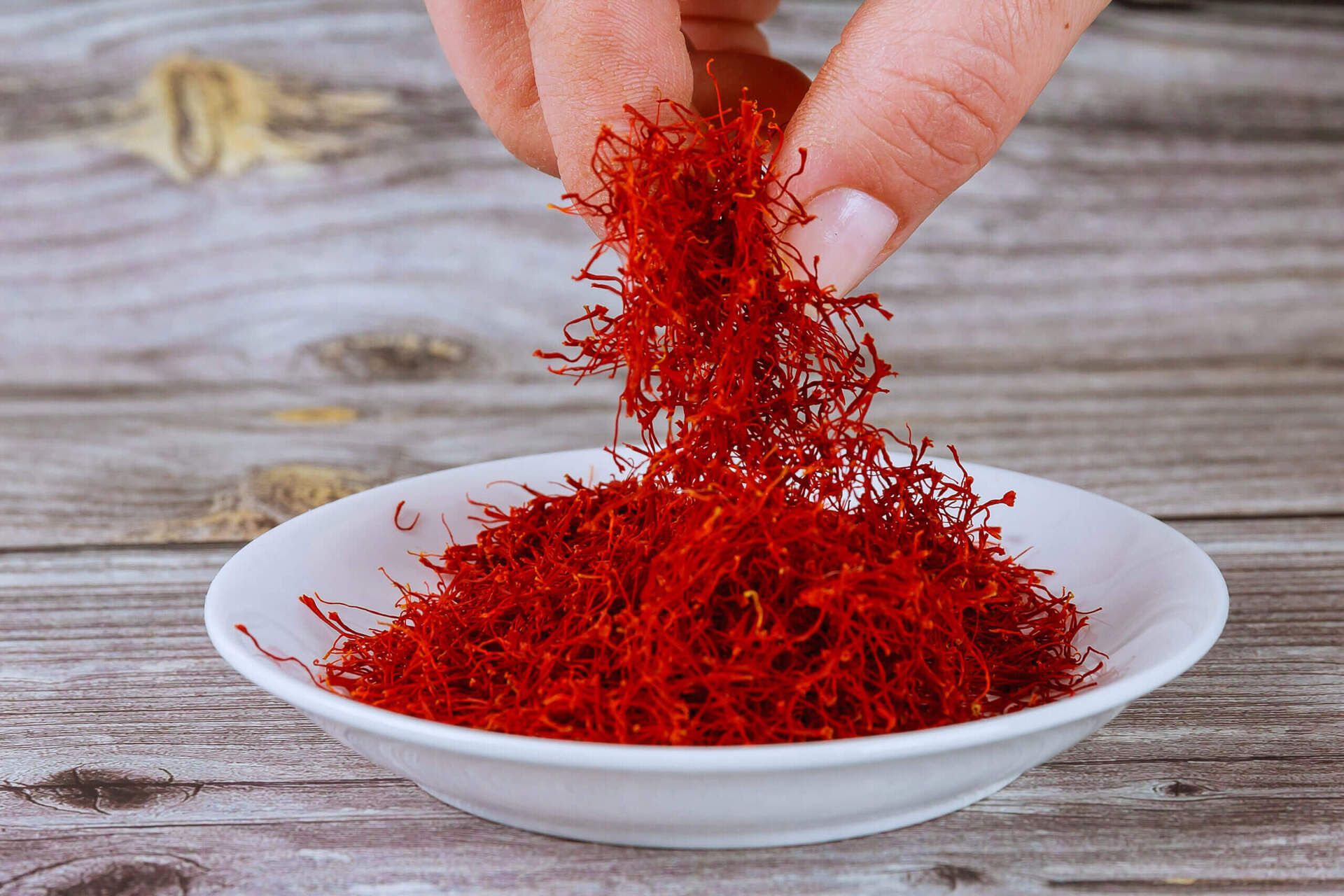- Thriving Guide
- Posts
- How Adding Saffron to Your Diet Affects Sleep, Mood, and Heart Health
How Adding Saffron to Your Diet Affects Sleep, Mood, and Heart Health
This ancient spice may support better sleep, mood, and heart health but there are some precautions to know.

It’s known as the world’s most expensive spice, but saffron offers more than just rich color and flavor it may also deliver impressive health benefits, especially for your sleep, mood, and heart.
Saffron comes from the dried threads of the crocus flower (Crocus sativus) and has been used for centuries in both cooking and traditional medicine. Modern science is now catching up, with growing research suggesting that saffron may play a role in supporting mental well-being, sleep quality, and cardiovascular function.
Here’s what happens to your body when you add saffron to your daily routine and what you need to consider before doing so.
1. It May Improve Mood and Mental Health
Several compounds in saffron most notably crocin and safranal appear to boost the levels of dopamine, serotonin, and norepinephrine in the brain. These are the same neurotransmitters targeted by many antidepressants.
A review of clinical trials found that saffron may be as effective as certain medications in relieving symptoms of mild to moderate depression and anxiety, without the same side effect profile. Researchers believe saffron’s antioxidant and anti-inflammatory effects may also play a role in protecting brain cells from stress.
2. It Could Help You Sleep Better
Saffron may be a natural ally for a better night’s sleep. In one clinical review, participants who took saffron supplements experienced improved sleep duration and quality, including deeper and more restorative sleep.
Why it works: Saffron is believed to support melatonin production, the hormone that regulates your sleep-wake cycle. It may also interact with sleep-promoting receptors in the brain, helping to calm the nervous system before bed.
3. It Supports Heart Health in Multiple Ways
Saffron contains powerful antioxidants that help protect blood vessels from damage and inflammation key factors in the development of heart disease. Studies show that saffron may:
Reduce blood pressure
Lower total cholesterol and LDL (“bad”) cholesterol
Improve blood sugar control
Promote healthier circulation
Though saffron isn’t a substitute for heart medication, some experts suggest it may be a useful complement to conventional treatment under medical supervision.
4. It May Assist With Weight Management
In clinical studies, saffron supplements helped reduce several factors associated with obesity and overeating, including:
Appetite and food cravings
Body weight
Body mass index (BMI)
Waist circumference
These results were observed in people with obesity, adolescents, and individuals with heart disease. That said, more research is needed before saffron can be recommended as a standalone weight loss solution.
5. It Might Improve Eye Health
Saffron’s antioxidant properties also extend to eye health. Clinical trials suggest that daily saffron supplementation can improve vision in people with age-related macular degeneration (AMD) and diabetic maculopathy two conditions that can lead to vision loss.
Other research indicates that saffron may help lower eye pressure in people with glaucoma, potentially helping to preserve vision in the long term.
How to Use Saffron Safely
Saffron is typically used in small amounts as a spice, but it's also available in supplement form, including:
Capsules or tablets
Liquid extract
Powder
Tea
Topical paste (for skin care)
When taken orally, less than 5 grams per day is generally considered safe for most healthy adults. However, always check with your healthcare provider especially if you’re taking medications or have a chronic condition.
Who Should Avoid Saffron?
While saffron is generally safe in moderate amounts, some people should be cautious or avoid it altogether:
Pregnant or breastfeeding individuals: Saffron may stimulate the uterus and increase miscarriage risk.
People with hormone-sensitive conditions: If you have breast, ovarian, or prostate cancer, speak to your doctor before using saffron supplements.
Those with bleeding disorders or taking blood thinners: Saffron may increase bleeding risk.
Anyone experiencing unexplained symptoms: Signs of saffron toxicity may include numbness, tingling, or yellow-tinged eyes or skin.
Potential Side Effects and Medication Interactions
Though rare, saffron may cause mild side effects when taken in large doses, such as:
Dizziness
Nausea
Diarrhea
Fatigue or drowsiness
Saffron may also interact with:
Mood medications (e.g., antidepressants)
Sleep aids or sedatives
Blood thinners
Always consult your healthcare provider before combining saffron with any prescription or over-the-counter medication.
The Takeaway
Saffron is more than just a gourmet spice it’s a nutrient-packed botanical with real potential to enhance mood, support sleep, protect your heart, and improve eye health. But as with any supplement, it’s important to approach it with knowledge and care.
Want more evidence-based wellness tips? Subscribe to our newsletter or share this article with someone curious about natural health.